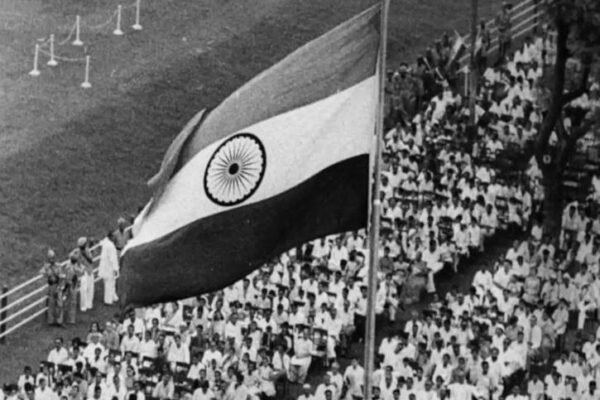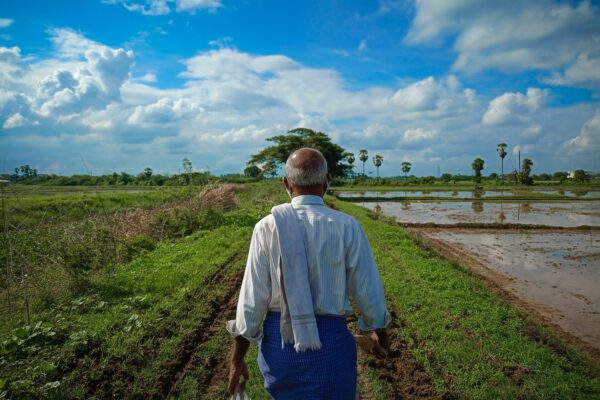On Thursday, a 22 year old Muslim was taken to the hospital after he was beaten by a mob in the Bawana area of New Delhi. He was attacked by a gang of goons on Sunday after he returned home from Madhya Pradesh, a neighboring state, where he had gone to attend the events of Tablighi Jamaat.
On Thursday, a 22 year old Muslim was taken to the hospital after he was beaten by a mob in the Bawana area of New Delhi. He was attacked by a gang of goons on Sunday after he returned home from Madhya Pradesh, a neighboring state, where he had gone to attend the events of Tablighi Jamaat.
NEW DELHI – Like the rest of the world, India is grappling with the coronavirus crises. A 21-day unprecedented lockdown announced by Prime Minister Narendra Modi on March 24 is underway to curb the spread of the virus. But unlike other countries, the response to the rise in the number of cases is laced with violence against Muslims.
In the last week of March, the graphs tracking coronavirus cases in India showed a sudden spike after weeks of steady rise. From several states, people began showing COVID-19 symptoms and when doctors explored the reasons for the sudden increase they found that most of these new cases had a common link – a congregation of Muslims held at the start of March at a mosque of Tablighi Jamaat, a global movement of Muslim preachers, in New Delhi.
On March 30, the news of the death of six preachers due to COVID-19 in the state of Telangana in southern India sent an alarm bell in government quarters because all the cases were linked to the congregation. The preachers had spread out across the length and breadth of the country after attending the congregation to spread their message of Islam amongst the Muslims. The authorities in different states set out to trace the attendees of the congregation to put them under quarantine.
The start of April saw the majority of the positive cases were from those who had attended the congregation or their contacts.
The Tablighi Jamaat congregation, having emerged as a major coronavirus cluster, has prompted a renewed wave of Islamophobia in the form of vilification campaigns on the internet and mainstream media targeting the Jamaat even though there have been many other instances of public and religious gatherings that have taken place in March. The government in Delhi filed a case against the Jamaat congregation, accusing it of ignoring guidelines. In its defense, the Jamaat said the authorities were not cooperative when they appealed for help to evacuate those stranded at the mosque amidst the lockdown.
The newspapers have published baseless reports which the police have termed fake. Social media is abound with rumours of Muslims spitting or poisoning food to spread coronavirus. #CoronaJihad and #TablighiBomb, pejorative hashtags, trended on social media to make baseless allegations that Muslims spreading the coronavirus were a part of a conspiracy against the Indian nation.
The news channels beamed out visuals and graphics reeking of blatant Islamophobia, making ordinary people take the outlandish claims as facts. The success of the campaign became easy because hate against Muslims has taken deep roots in India in the past six years under the rule of Prime Minister Modi, a right-wing leader of the nationalist Bhartiya Janta Party. Just over a month ago, large scale anti-Muslim violence took place in Delhi, the capital of the county, leaving over 50 people dead and hundreds injured.
The consequences of this hate campaign have emerged exactly in the shape everyone warned about – mob violence. There have been numerous instances of Muslims being singled out, threatened, heckled, hounded, and assaulted.
On Thursday, a 22 year old Muslim was taken to the hospital after he was beaten by a mob in the Bawana area of New Delhi. He was attacked by a gang of goons on Sunday after he returned home from Madhya Pradesh, a neighboring state, where he had gone to attend the events of Tablighi Jamaat. He is currently recovering from the attack.
The police told the media the attackers had suspected that he had a plan to spread coronavirus. A video of him being harassed by the goons has been widely shared on social media.
In fact, Muslim volunteers and their organisations are at the forefront of the non-governmental interventions being done to assuage the miseries of the poor and the migrant laborers across the length and breadth of the country.
But just last week, in one episode Muslim volunteers doing relief distribution work were attacked and injured by members of Rashtriya Swayamsevak Sangh, an ultra right-wing extremist group. They were assaulted with cricket bats. The attackers were told to stop distributing the rations, and accused them of spreading the virus.
This happened in Bangalore .
Syed Tabrez, Junaid,Uday, Kiran Santosh were attacked by a mob for distributing food.
Mob called them terrorists and accused them of having links with #NizamuddinMarkaz & spreading #Covid_19 .
Tabrez's mom alleges that accused were from BJP/RSS. pic.twitter.com/sfiGOBcNCn
— Md Asif Khan آصِف (@imMAK02) April 6, 2020
One of the victims Zareen Taj told scroll.in that the assailants had said: “Muslims are poisoning the rations, you people don’t deliver food here, you Muslims have to leave the slum and relocate somewhere else.”
In the far east of the country, Muslim truckers who were delivering supplies had to leave their trucks behind and flee for their lives after they were beaten up by the locals on these same accusations.
In addition to these acts of violence, Muslims are also facing a social and economic boycott.
Several incidents have been reported in the media in the last few days that speak of the rise in discrimination against Muslims. In one town, Muslim fruit vendors were forced to shut shops while in another case, Muslims were beaten and driven out from villages. In Delhi, a gated locality decided to shut its doors for Muslim visitors.
Experts say the discrimination if left unchecked would lead to “the devastation of livelihoods”. Speaking to TMV, Asim Ali, a political columnist and researcher, said:
If this discrimination takes root and becomes widespread and the image of Muslims as the culprits in spreading coronavirus in India becomes widely accepted, they could be potentially blamed for thousands of deaths. The stain of that guilt would be hard to remove for a long time.”
The violence against Muslims even during a terrifying pandemic has got some activists worried that Rohingya refugees camping in different towns and cities of India may be the next target of right-wing forces as well.
The Rohingya refugees in India are mostly undocumented and without any refugee or wage protection, the Indian government has already indicated to put undocumented residents in detention centres.
Groups working for refugees say that it is just a matter of time before they become the target of right-wing attacks. Dr Rushda, a scholar in Delhi who has done work on refugees, says that the lack of protection makes Rohingya refugees the most vulnerable group. She says that the lack of calls for organised help to the Rohingya has made them invisible which has in one way protected them – but they are now facing hardship because they are unable to venture out and find work due to lockdown: “It is a double-edged sword.” She says if a case of coronavirus emerges from their camp, the media will start calling it “the Rohingya Bomb”. “It will be easy for the right-wing groups to then to subject them to gettoized violence.”
The authorities seem to have taken note of the rise in anti-Muslim violence as many politicians have urged the people to refrain from giving communal colour to the COVID-19 crises. In some cases, police have even dispelled alleged reports of misbehavior by Tablighi Jamaat members as fake news. The action of the police, which has often been accused of anti-Muslim bias, surprised many. Asif Khan, a social media activist known for collating visual evidence on Islamophobia in India, said the police seem to be setting its credibility right: “They are [only] busting fake news for reputation.”





